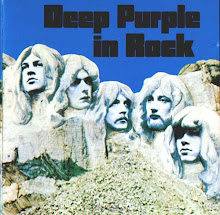I described myself on here the other day as being 'tired and emotional' (I think it must have been in my anecdote about having fallen asleep on the Beijing Subway's 'circle line' for an hour-and-a-half after a baijiu banquet); I may well have done so on other occasions as well.
It occurs to me that - these days - the expression goes over the heads even of many British people, and has probably always been obscure to my readers from other countries.
It is a euphemism for being drunk, which has become fairly widespread in the media and in popular culture in the UK - supposedly finding favour originally because allegations of drunkenness are hard to prove and might fall foul of our laws on libel and slander (particularly, perhaps, back in the '60s and '70s, when attitudes to public drunkenness were more censorious, and such a charge made against a prominent person might be seen as damaging to their dignity and reputation; nowadays, I can't imagine that anybody really gives that much of a damn). However, I wonder how many people today fully understand the phrase, or are aware of its origins. It was first coined - or, at least, popularized - back in the 1960s by the English satirical magazine Private Eye (the Wikipedia article on the magazine is worth a look), in reference to George Brown, a leading member of the Labour government of the time and a notorious over-indulger in alcoholic beverages. I believe The Sunday Times was once bold enough to say of him, "George Brown drunk is a better man than Harold Wilson [the Prime Minister] sober."
Many stories grew up concerning Brown's misadventures with alcohol. It was said, for example, that he had been obviously drunk when interviewed live in a TV news studio about the assassination of President Kennedy, and this may have been the starting point for the 'tired & emotional' tag. I believe it was also Brown who was the source of another of The Eye's long-running in-jokes - using the phrase "Ugandan affairs" as a euphemism for having sex. Brown, it seems, had impressed an attractive woman at an official reception for visiting African dignitaries, and had spirited her away to an upstairs room for an extended period (he was for a while the Foreign Secretary, so may actually have been the host for this event). Returning late to the party, looking flushed and smug, questions were inevitably raised about his absence, with the implication, of course, that he had been indulging in some rumpy-pumpy. Brown insisted that he had merely been "discussing Ugandan affairs" with the lady in private.
He was not always so lucky. The very best story about him (almost certainly apocryphal, but what the hell) is surely this one. At another official soirée, this time in South America, George Brown was more than usually drunk (sorry, "tired and emotional") and more than usually randy. Seeing a rather striking figure in a long red gown, unaccompanied, on the far side of the room, he staggered over and tried to turn on the charm: "My dear lady, would you do me the great honour of joining me for this dance?"
He received the rather frosty reply:
"My good sir, there are at least three reasons why I must decline your request. First, you are drunk. Second, this tune the band is playing is my country's national anthem. And third, I am the Cardinal Archbishop of Valparaiso."
Oh dear. Not even I have ever struck out that badly!






No comments:
Post a Comment